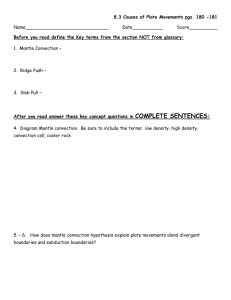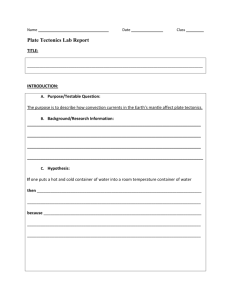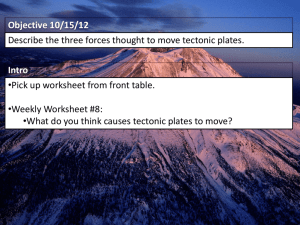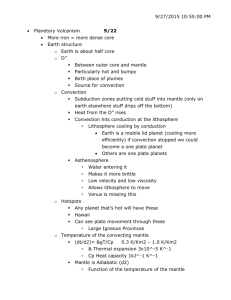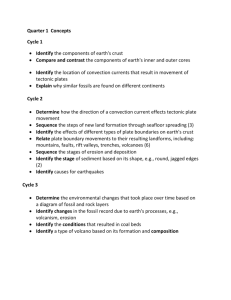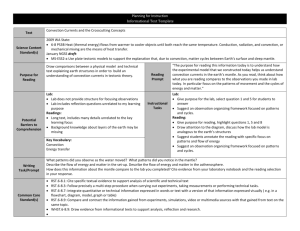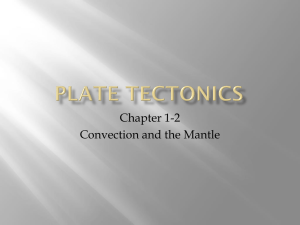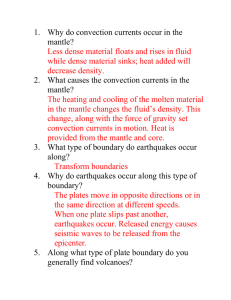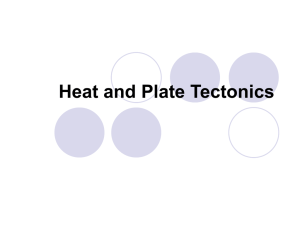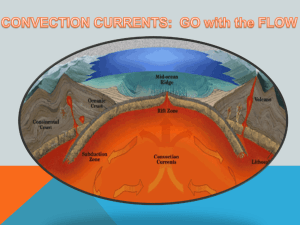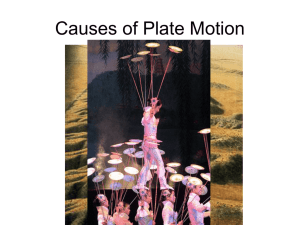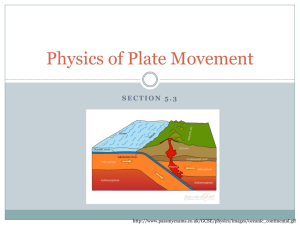Convection
advertisement
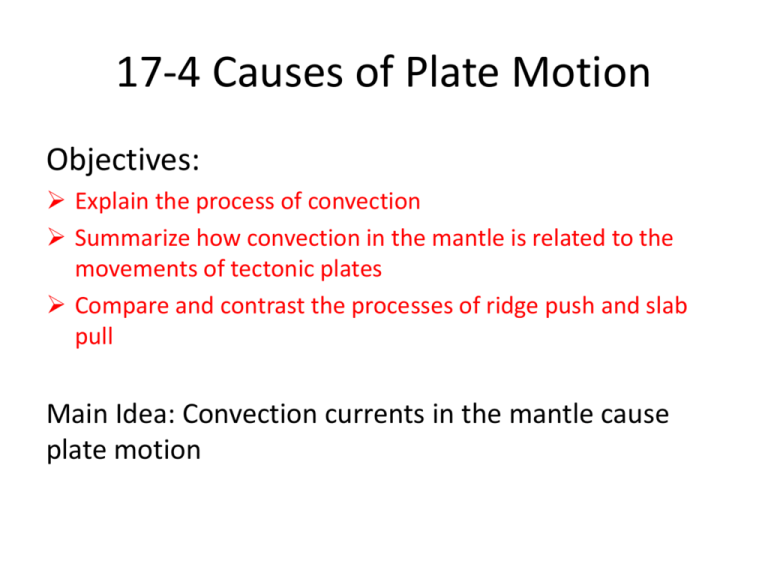
17-4 Causes of Plate Motion Objectives: Explain the process of convection Summarize how convection in the mantle is related to the movements of tectonic plates Compare and contrast the processes of ridge push and slab pull Main Idea: Convection currents in the mantle cause plate motion Convection & Convection Currents Convection: the transfer of thermal energy by the movement of heated material from one place to another Many scientists now think that large-scale motion in the mantle is the mechanism that drives the movement of tectonic plates • Cooling of matter causes it to contract slightly and increase its density Cooled matter then sinks as a result of gravity Warmed matter is then displaced and forced to rise This up-and-down flow produces a pattern of motion called a convection current Convection in the Mantle Convection currents develop in the mantle, moving the crust and outermost part of the mantle and transferring thermal energy from Earth’s interior to its exterior Plate Movement Rising material in a convection current spreads out as it reaches the upper mantle Causes both upward and sideways forces These forces lift and split the lithosphere at divergent plate boundaries The downward part of a convection current occurs where a sinking force pulls tectonic plates downward at convergent boundaries Push & Pull Ridge Push- occurs when the weight of an elevated ridge pushes an oceanic plate toward a subduction zone Slab Pull- occurs as the weight of the subducting plate pulls the trailing lithosphere into a subduction zone
